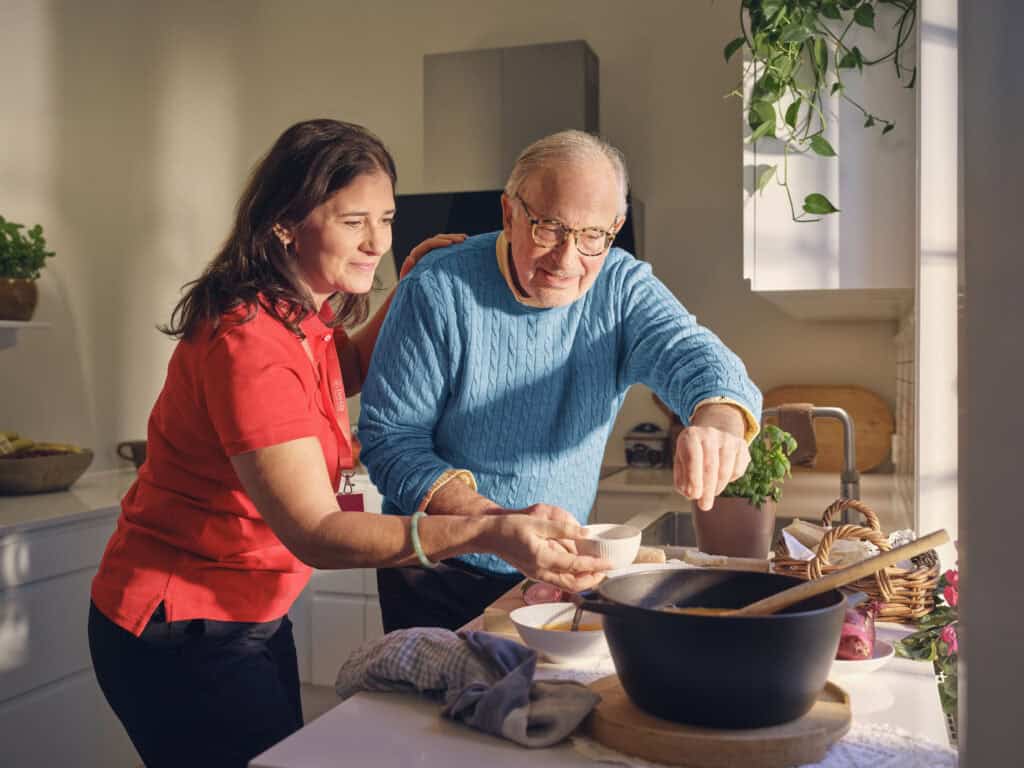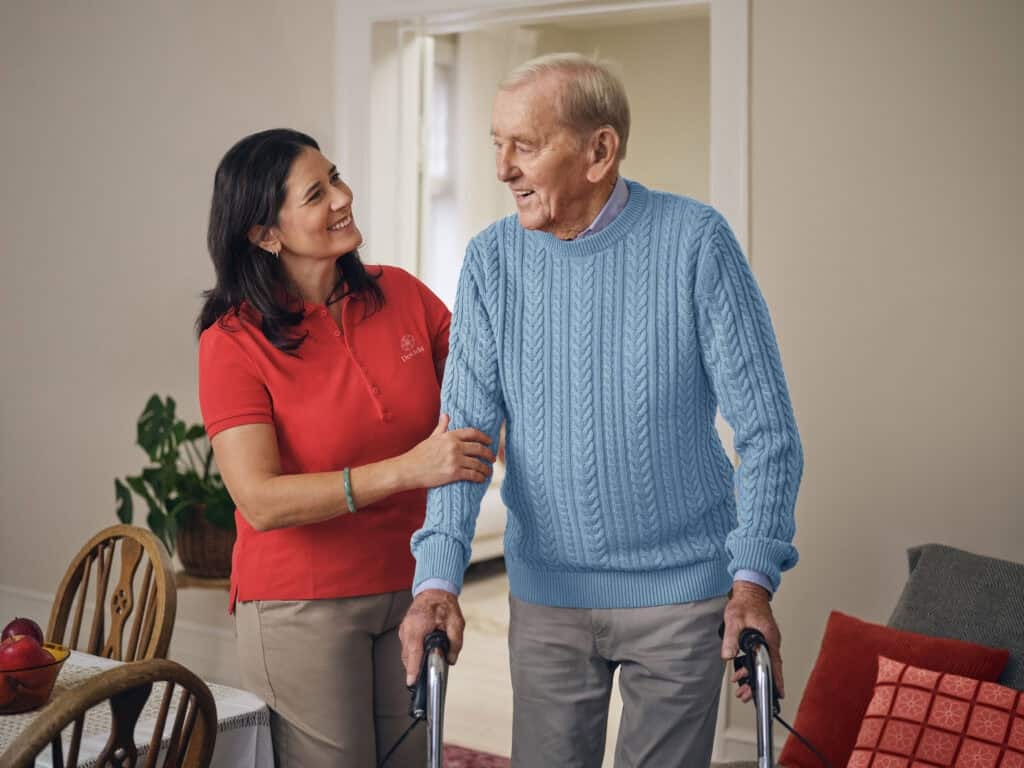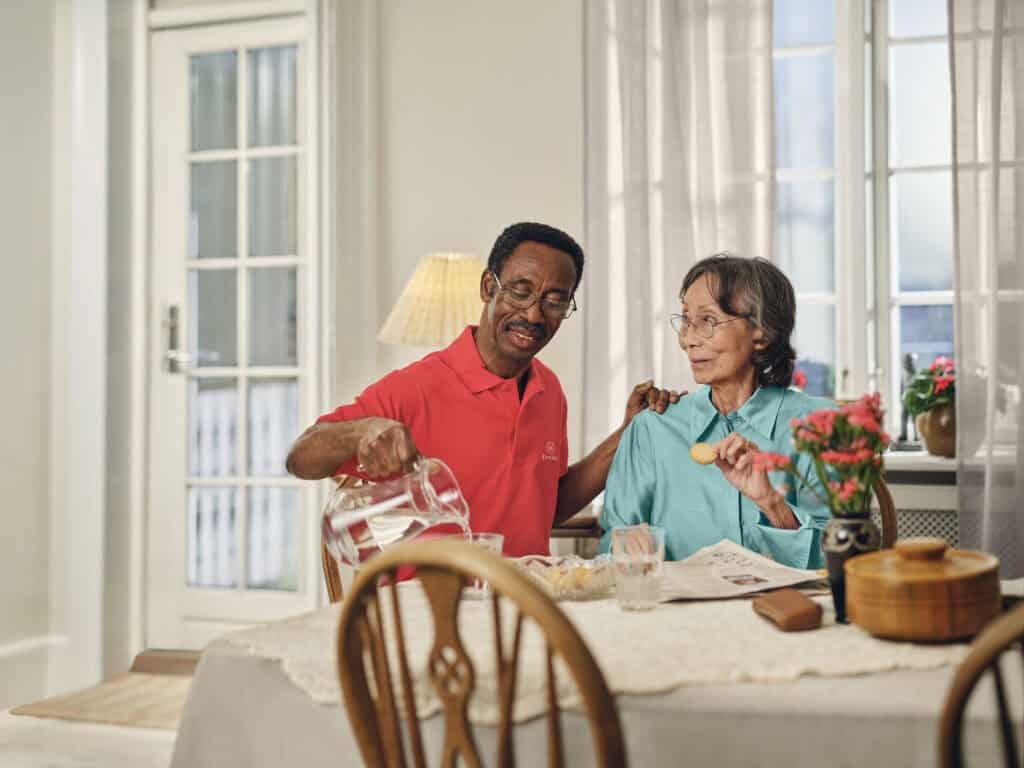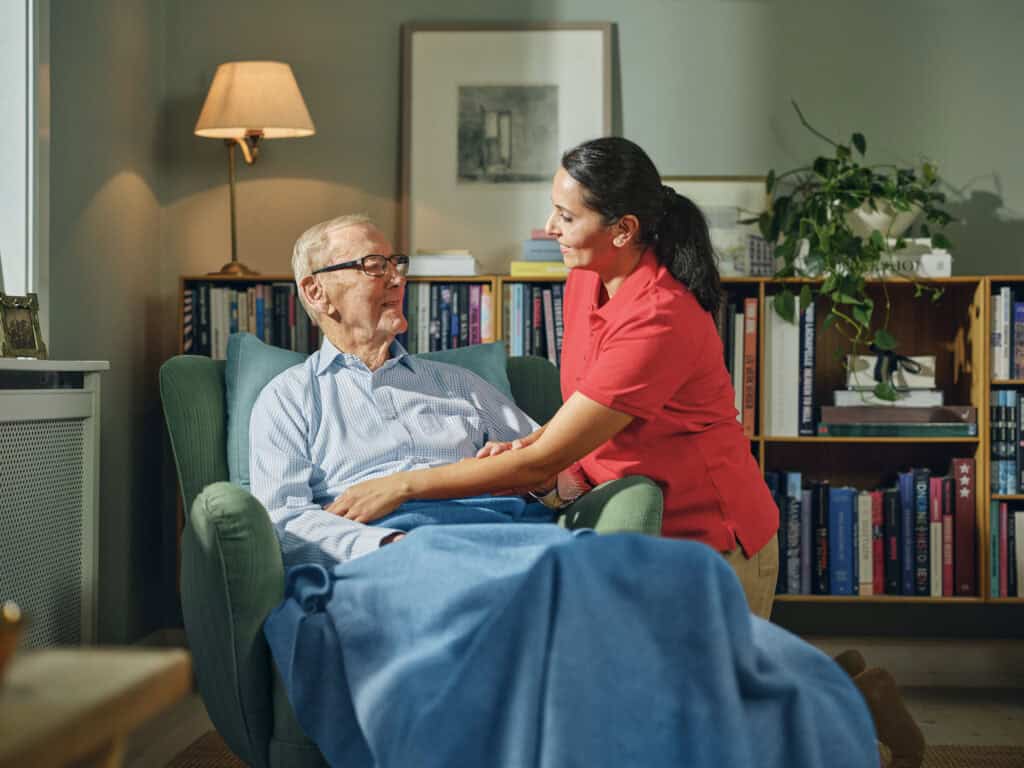Blog
17 June 2025
Nursing home care, or care at home?
Cost, safety, time and practicality – there is much to consider with either option, but personal choice should be key
Michael Wright
Growth in nursing home bed numbers in Ireland has flatlined, despite our demographic shift and the delight we all share that so many people are living longer lives. One key factor has been the significant increase in government funding for HSE home support services, meeting a key demand of the electorate to remain at home for as long as possible.
This increase in funding also helps an equally significant army of family carers, who give their time and effort to ensure loved ones continue to live at home. It is complemented by additional, privately funded assistance provided by organisations like Dovida.
At the recent Engaging Dementia International Conference in Athlone, Helen Rochford-Brennan, who lives with dementia, spoke of how she aims to “live on her own terms” and how her current home support service (called day care at home) supports her to “participate fully, meeting neighbours and going for coffee”.

It is not difficult to understand why people want to remain in their localities, to work in their garden, sleep in the bed they bought, have family around for chats and cups of tea at the kitchen table, as they have done for decades.
Nursing homes clearly have a place in the healthcare system; they are vital facilities that offer short-term or long-term care. In my own experience, I have met many people who chose to move to a nursing home for medical reasons, for social reasons and for practical reasons. I remember a Tipperary man, who having had a sudden stroke was unable to climb the stairs to his bathroom on the third floor, let alone his bedroom on the second floor, and chose to move to a nursing home as it was in no way straightforward or timely to modify his 18th century terrace townhouse.
A critical decision
I have also met people who were desperate to remain living at home, yet due to perceived challenges of moving home, and the ease at which a Fair Deal application can be made and a nursing home bed secured, they ended up moving to a residential facility. Often such momentous life-changing decisions are made immediately following an accident or illness, when someone is in hospital, when demands on the person’s hospital bed are being made and time to consider all the options is limited.
Sometimes perceived costs can drive the decision. It’s often assumed nursing homes offer round-the-clock care and, in addition to care, the nursing home also provides meals and heated rooms and activities. If you live at home, you have to pay – or ask family to help you with – your oil bills, your electricity bills and all your food costs, in addition to any private care.
Whilst running your own household carries the same expenses it has done all your life, a better understanding of how care and support work in both nursing homes and home care may help people with their decision making.
The BDO 2023-2024 survey of private and voluntary nursing homes in Ireland reported that nursing homes provide an average of 3.6 hours of one-to-one support, delivered either by a nurse or a healthcare assistant, to residents every day. That’s 25.2 hours per week, which means you have staff supporting you one-to-one for only 15% of your time in a nursing home. This is very different from one person providing you 24/7 care.
On average, Dovida provides its clients with 12 hours a week of HSE-funded home support. However, the HSE often funds up to 21 hours a week and Dovida does provide a number of clients in excess of 25 hours a week of HSE-funded care.

Tax relief on home care
HSE home support services are not means tested, unlike nursing home costs. The Fair Deal (nursing home support scheme) means tests all applicants (except those willing to pay their nursing home costs 100% themselves). Fair Deal applicants pay 80% of their assessable income to the HSE to cover the cost of their nursing home care and in addition pay 7.5% per annum of their assets (capped at three years for their principal residence).
On top of Fair Deal-assessed costs, many nursing homes charge additional fees for activities or professional services such as physiotherapy. This can amount to an additional €100 per week.
Dovida provides private home care services from €33.90 per hour, and tax relief is available at the marginal rate against such costs. It can be cost effective to complement free HSE home support with paid private care, and receive the same or a greater amount of one-to-one care than any nursing home can offer.
The decision over nursing home or home care is often made not only on cost grounds, but also over safety considerations. After all, nursing home residents have alarms in their rooms. If they fall at night and can reach the alarm, help will arrive.
At home, people live with personal alarms, however help is not always on-site. However, in both cases, if the alarm cannot be reached or activated, help may not arrive until the morning, when care staff arrive at your home or to your nursing home room.
And people do fall in nursing homes. Hiqa’s notification database states that of the 4,026 serious injuries to residents that required immediate medical and/or hospital treatment in 2023, 85% of them were from falls and the resident was alone during 70% of such incidents. Over half occurred in the resident’s bedroom.

During the Covid-19 pandemic, nursing homes also experienced greater transmission between residents – home was proven to be a far safer place to avoid infectious diseases.
Happier at home
So wherever you live, you live with risks. Surely it is the right of the person requiring support to decide about the risks they want to live with? I remember a daughter telling me she would prefer her mother to move into a nursing home because she couldn’t sleep at night knowing her mother was alone at home. Whilst I had sympathy for the daughter, it was the mother’s life that was massively impacted by her daughter’s desire for a restful night.
Our parents have the right to live at home where they might fall, just as they do to move into a nursing home, where they also might fall. So where are people happier?
Survey after survey shows around 90% of adults in Ireland would choose support and care at home over a hospital, hospice or nursing home, in the event it was required. Nursing homes are clinical environments, with staff in uniforms, alarms sounding and most residents living with multiple complex needs.
Home is very different. People are surrounded by their own belongings, in the same rooms where they may have raised a family and met with dear friends, they can enjoy their own kitchen and have control of the volume and channel of their TV in their sitting room.
With private home care in addition to HSE home support, care costs at home are as affordable as nursing homes and risks are manageable. People want autonomy and dignity – and home is where this resides, in spades.
Michael Wright is Director of Growth at Dovida Ireland.
This article was originally published in The Phoenix magazine.

